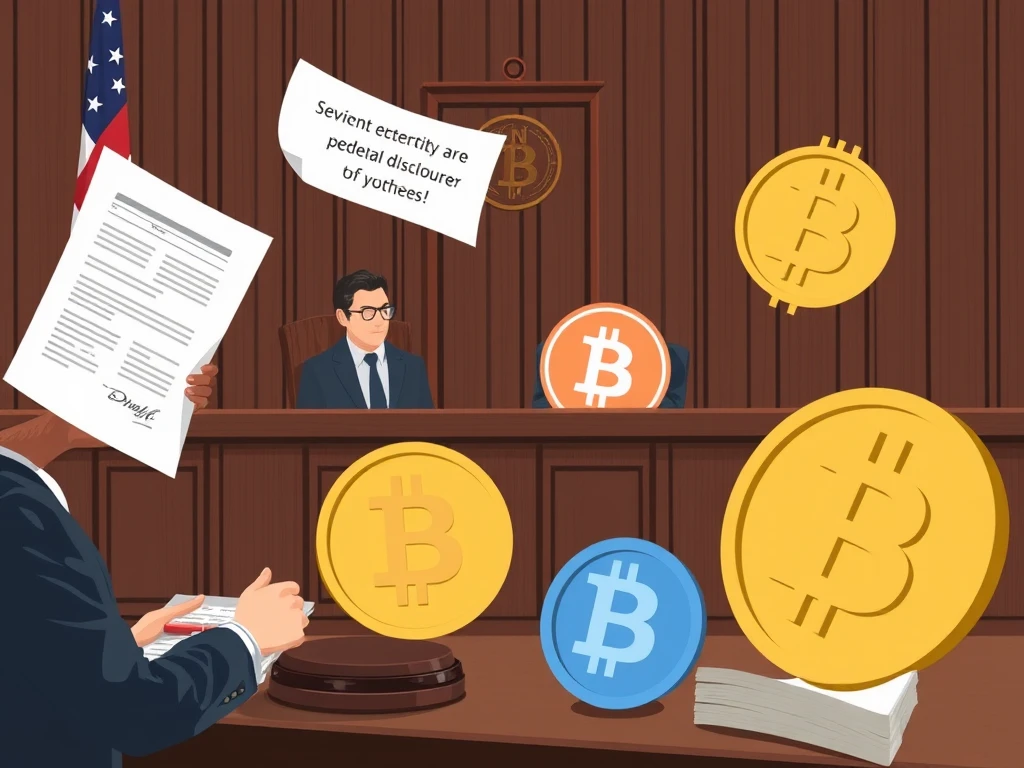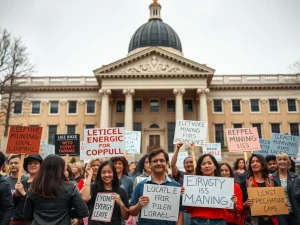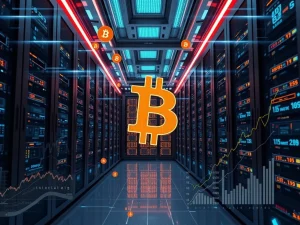Samourai Wallet Case: Feds Fiercely Deny Late FinCEN Evidence Disclosure Claim

Stay informed on the legal battles shaping the crypto landscape. The ongoing Samourai Wallet case has taken another turn, with federal prosecutors pushing back against accusations of suppressing crucial evidence. This development highlights the complex regulatory environment surrounding privacy-focused crypto services like mixers and the challenges faced by services navigating definitions like money services business.
Federal Prosecutors Respond to Evidence Claims
In a recent filing, federal prosecutors addressed accusations from the Samourai Wallet co-founders, Keonne Rodriguez and William Hill. The defense claimed prosecutors were late in disclosing a conversation with Treasury Department staff, specifically from FinCEN, that allegedly suggested Samourai Wallet might not require a FinCEN license.
Prosecutors firmly denied this, stating they disclosed the information within the required timelines, months before pretrial motions and the scheduled trial date. They argued that the defendants would have ample time to review and utilize this information.
Understanding the FinCEN Conversation
The core of the dispute centers on an informal conversation between prosecutors and staff from the Financial Crimes Enforcement Network (FinCEN) in August 2023. According to prosecutors, FinCEN staff shared their ‘individual, informal, and caveated opinion’ regarding Samourai Wallet’s status.
- The email summarizing the call noted that because Samourai doesn’t hold custody of users’ crypto, it ‘would strongly suggest that Samourai is NOT acting as an MSB [money services business].’
- However, the email also noted that the FinCEN staff ‘did not have a sense of what FinCEN would decide if this question were presented to their FinCEN policy committee.’
Prosecutors argue this was merely an informal opinion, not a definitive agency determination, and its disclosure was timely.
Why Does This Matter for the Crypto Mixer?
The defense for the crypto mixer co-founders sees the FinCEN conversation differently. They argue that this informal opinion supports their claim that Samourai Wallet was not operating as a money services business under FinCEN guidance and, therefore, should not be prosecuted for not having a license.
Rodriguez and Hill were arrested in April 2024 and charged in February 2024 with conspiracy to operate an unlicensed money transmitting business and money laundering conspiracy. They have pleaded not guilty.
DOJ Memo and Legal Arguments
The defense also referenced a recent memo from Deputy Attorney General Todd Blanche, which stated the Justice Department wouldn’t prosecute crypto mixers for ‘unwitting violations of regulations.’ Prosecutors countered this, arguing the memo should not be considered by the court as it explicitly states it cannot be relied upon to create rights or benefits against the US government.
This legal back-and-forth underscores the ongoing challenges in applying existing regulations to novel cryptocurrency services and the potential impact of informal guidance versus formal policy decisions.
Concluding Thoughts on the Samourai Wallet Case
The dispute over the disclosure timeline and the interpretation of the FinCEN conversation adds another layer of complexity to the Samourai Wallet case. As the trial approaches, the arguments surrounding whether Samourai operated as an unlicensed money services business and the timing of evidence disclosure will likely remain central to the proceedings. This case is being closely watched by the crypto community for its potential implications on privacy tools and regulatory enforcement against crypto mixer services.








